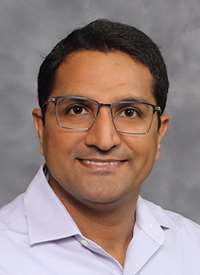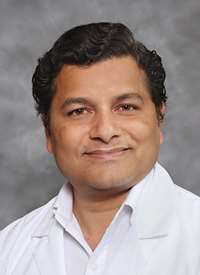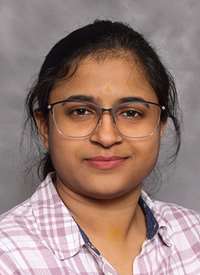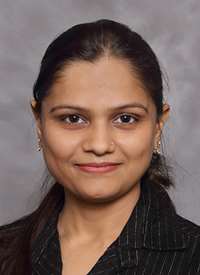William G. Schuett, Jr., Multiple Myeloma Research Laboratory
The laboratory is generously supported by an endowment in memory of William G. Schuett, Jr., a cancer advocate and business leader who lost his battle with myeloma after a long, heroic fight. The laboratory was established in 2018 and is directed by Dr. Siegfried Janz, the inaugural William G. Schuett, Jr., Multiple Myeloma Endowed Chair.
Our primary research interest concerns multiple myeloma, a neoplasm of terminally differentiated, immunoglobulin-producing B lymphocytes that reside in the hematopoietic bone marrow and cause end organ damage such as osteolytic lesions and kidney disease. We use continuous human myeloma cell lines and genetically engineered mouse models of human myeloma as principal experimental model systems to elucidate mechanisms of malignant plasma cell development and evaluate new approaches to myeloma treatment and prevention. Working in close association with clinical colleagues in the Division of Hematology and Oncology, we employ a bench-to-bedside-and-back strategy to translate advances in the laboratory to improving the outcome of patients with multiple myeloma and, eventually, finding a cure for this devastating disease.
About the PI
 After obtaining his medical degree and board certification in Clinical Immunology from the University of Leipzig, Germany, Siegfried Janz joined the Laboratory of Genetics at the National Cancer Institute (NCI), Bethesda, Maryland, to perform studies on inflammation-dependent peritoneal plasmacytomas in BALB/c mice – a first-generation model of human plasma cell neoplasms including plasma cell myeloma, plasmacytoma, and plasma cell leukemia. His tenure at the NCI shaped an enduring fascination with fundamental and translational research into plasma cell malignancies.
After obtaining his medical degree and board certification in Clinical Immunology from the University of Leipzig, Germany, Siegfried Janz joined the Laboratory of Genetics at the National Cancer Institute (NCI), Bethesda, Maryland, to perform studies on inflammation-dependent peritoneal plasmacytomas in BALB/c mice – a first-generation model of human plasma cell neoplasms including plasma cell myeloma, plasmacytoma, and plasma cell leukemia. His tenure at the NCI shaped an enduring fascination with fundamental and translational research into plasma cell malignancies.
In 2007 Janz joined the Department of Pathology at the University of Iowa (UI) Roy J. and Lucille A. Carver College of Medicine as research professor to conduct studies on second-generation mouse models of human myeloma dependent on deregulated expression of the cellular oncogene MYC. This work took advantage of gene-insertion mice that were generated in the Janz Lab to mimic different fine structures of the human MYC-activating t(8;14)(q24;q32) translocation. As (co)leader of the Cancer Genetics Program, he was actively engaged in developing the research portfolio of the UI Holden Comprehensive Cancer Center.
In 2018 Janz relocated his laboratory to the Division of Hematology and Oncology, Department of Medicine, Medical College of Wisconsin (MCW) Milwaukee, and joined the Developmental Therapeutics Program at the MCW Cancer Center. Together with his team, he recently completed both an NCI-supported project on genetic pathways of plasma cell neoplasia (2R01CA151354) and a study on novel immune treatments for myeloma funded by the Riney Family Multiple Myeloma Research Initiative. Now he concentrates on an ongoing project supported by a generous grant from Blood Cancer United that evaluates the potency of autologous, BCMA-targeted, TGFβ-resistant CAR-T cells to seek out and kill aberrant plasma cells in patients with myeloma.
Faculty

Deepak Parashar, PhD
Assistant Professor
Lab Members

Khanmi Kasomva, PhD
Postdoctoral Researcher

Ansul Sharma, PhD
Postdoctoral Researcher

Swadha Pandey, MS
Project Appointment Student

Sandhya Rai, PhD
Postdoctoral Researcher
Current Research
Developing a new BCMA-regulated CD24-targeted CART therapy for multiple myeloma
The main goal of this project, made possible by a grant from the Riney Family Multiple Myeloma Research Initiative, is the design and testing of chimeric antigen receptor (CAR) T-lymphocytes that are able to eliminate myeloma-initiating cells aka myeloma stem cells. Cells of this sort have been shown to express CD24, persist in patients with minimal residual disease, and underlie drug-resistant tumor relapse after a variable period of disease control. To eliminate residual CD24-expressing myeloma cells in situ, we are developing next-generation CAR T cells that attack CD24-expressing targets in a conditional, regulated fashion; e.g., upon binding B cell maturation antigen (BCMA) on the surface of myeloma cells.
Validation of forkhead box M1 (FOXM1) as a new therapeutic target in high-risk myeloma
The chief goal of this project is to elucidate the mechanism by which the transcription factor FOXM1 promotes multiple myeloma. The central hypothesis states that FOXM1 may afford a good treatment opportunity for newly diagnosed high-risk myeloma and relapsed myeloma. Specific research aims include the role of FOXM1 in myeloma biology (e.g., as regulator of metabolism) and myeloma genetics (e.g., FOXM1 network). Also included is the determination whether FOXM1 drives neoplastic plasma cell development in mouse models of human myeloma. Also included is the testing of novel small-molecule FOXM1 inhibitors. The long-term goal of the project is the development of a new, targeted approach to myeloma treatment.
Contact Us
William G. Schuett, Jr., Multiple Myeloma Research Laboratory
(414) 955-5782


